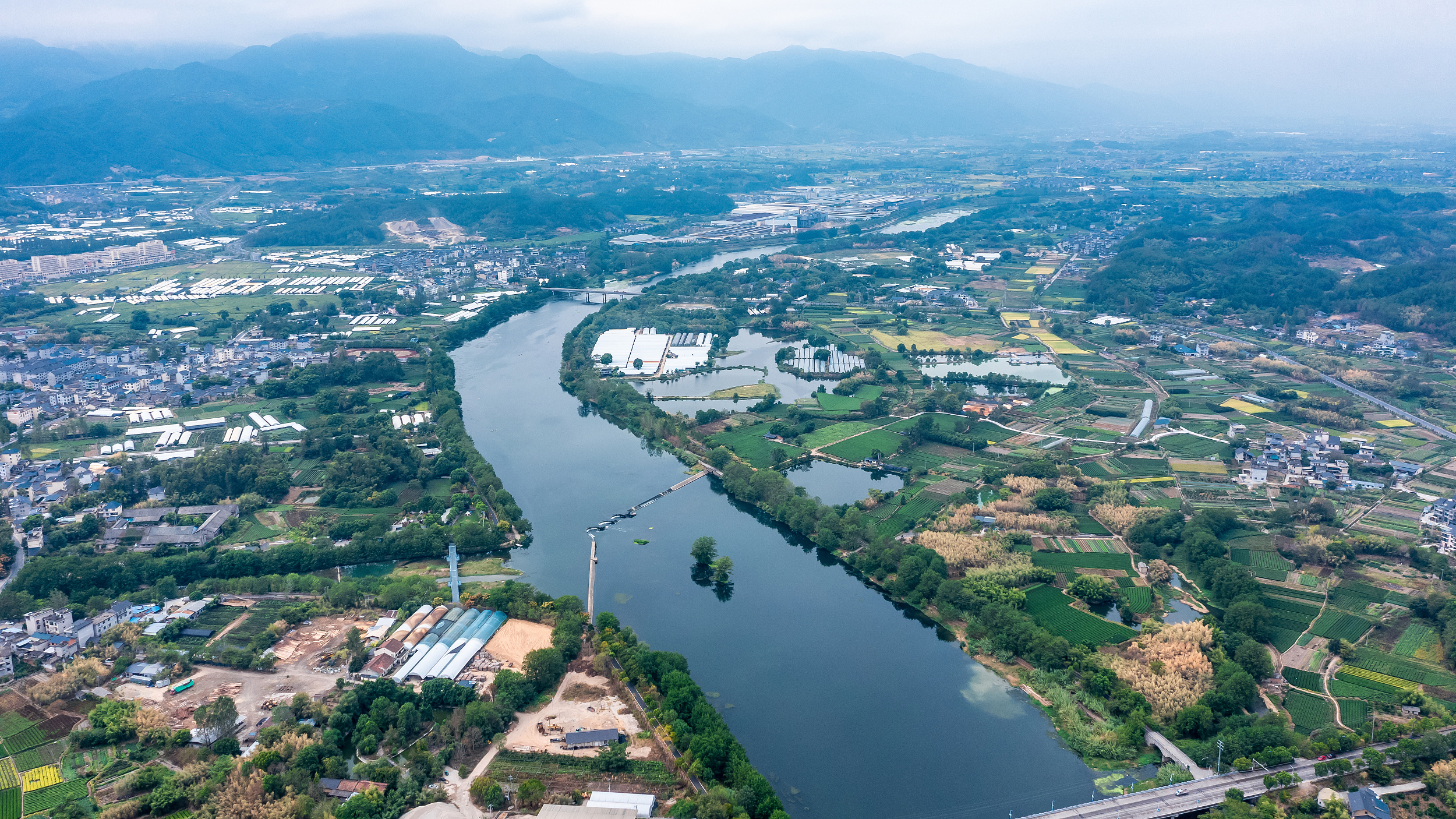
A bird's-eye view of Songgu Irrigation Scheme, Songyang county, Zhejiang province. (PHOTO:VCG)
By?BI?Weizi
The Songgu Irrigation Scheme, located in the Oujiang River Basin in Songyang county, Zhejiang province, was included in the list of World Heritage Irrigation Structures as "A remarkable irrigation scheme with impeccable engineering that has helped agriculture flourish in the region for over 2,000 years," according to the International Commission on Irrigation and Drainage.
Songyang county, which enjoys a long agricultural history, has a subtropical monsoon climate, with rainy season from March to June, hot and sunny season from July to August, and is prone to floods and drought. Since the Han Dynasty (206 BC-220 AD), the ancestors of the Songyang people had managed water by building a dense network of weirs, dykes, ditches and channels, drawing water from the Songyinxi River. The engineering system of the irrigation area was perfected in the Ming and Qing dynasties (1368-1911). By the end of the Ming and early Qing dynasties, there had been 120 ancient weirs and more than 100 ancient ponds and wells for irrigation, which are still used to irrigate 11,000 hectares of fields till today.
As a typical model of ancient irrigation engineering for small and medium-sized basins, with a rich display of historical weirs, low dams, ponds and wells, Songgu Irrigation Scheme helps maintain harmony between human and nature, support local production, benefit residents' daily lives and prevent natural disasters such as floods and droughts.
The trio will conduct a series of experiments in fields such as life science, fluid physics, combustion science and materials science. Notably, this is the first time that fruit flies have been taken on a Chinese space mission as experimental subjects. What made scientists choose fruit flies? What experiment will they undergo?
